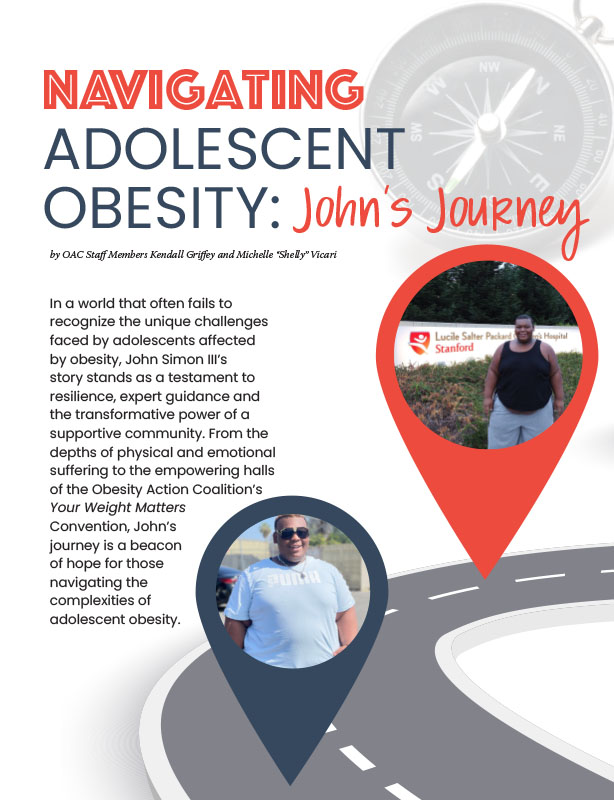"I’ve reached my goal weight and am thinking about having my gastric band removed. Is this a good idea?"


by Lloyd Stegemann, MD, FASMBS
Winter 2010
A 35-year-old female had a gastric band placed two years ago to treat her morbid obesity. She has done wonderful after surgery and gotten back to a much healthier weight. Almost all of the medical problems she had before surgery are now gone and she feels wonderful. At a follow-up appointment she asks her surgeon, “When do we take this gastric band out?”
This certainly seems like a reasonable question. The idea of doing weight-loss surgery is to get someone back to a healthier weight, right? Right. And certainly there is a degree of risk that comes with having a foreign body (gastric band) wrapped around your stomach for a long time, right? Right.
So then it seems logical that once a patient gets to a healthy weight the surgeon should take the gastric band out, right? WRONG! The reason lies in the biology and causes of obesity.
How do people become affected by severe obesity?
The simple answer is that they have consumed more calories than they have burned, or they have a positive energy balance. While being positive is generally a good thing in most aspects of life, when it comes to energy balance, being positive is definitely NOT a good thing!
You see, when we take in more calories than we burn, our bodies are designed to store those “extra” calories as fat. This genetic ability to store extra calories as fat came in handy thousands of years ago when our ancestors may have gone days or even weeks without having an abundance of food. During this period of relative famine, their bodies would mobilize the “extra calories” to give them energy to hunt, gather and run from predators.
Fast forward to 2010, we are literally surrounded by thousands of opportunities everyday to take in calories. These calories come in many shapes, sizes and flavors. We can now even get our calories in liquid form! If we are not careful, it is VERY easy to take in more calories than we burn and move into a positive energy balance.
Like our ancestors, we still have the ability to store any “extra” calories we take in as fat. Unlike our ancestors, however, we don’t have periods of famine so if we continue to stay in a positive energy balance our fat stores continue to accumulate over time. The result is a slow progression from overweight, to obesity and eventually to morbid obesity.
Does gastric banding change my genetics?
Simple answer, it doesn’t! People who have weight-loss surgery are exactly the same genetically even after their weight-loss operation. Doing weight-loss surgery gives individuals a “tool” to help them lose weight. If being in a positive energy balance causes someone to gain weight, how does one lose weight? Answer – they have to get their body into a negative energy balance, or burn more calories than they consume. What this means for most is that they need to diet (take in fewer calories) and exercise (burn more calories). The challenge for people with severe obesity is trying to stay in a negative energy balance long enough to get back to a healthier weight.
It is exactly this challenge that adjustable gastric banding helps with. By placing a gastric band around the upper part of the stomach, we can essentially allow the person to feel full with smaller amounts of food. This allows an individual to take in fewer calories and not feel hungry all of the time. By taking in fewer calories and burning more calories by beginning to exercise, adjustable gastric band patients can get into a negative energy balance and begin losing weight. With the help of this “tool,” many will see significant improvement in their weight and medical problems caused by excess weight.
What if we take the gastric band out once someone gets back to a healthier weight?
Genetically, the individual is exactly the same as they were before surgery. If they are able to stay energy-neutral (take in the same number of calories they burn), then they will be able to stay at the healthier weight. Unfortunately, in reality, this just doesn’t happen.
There are no studies that I can find in the medical literature that have looked specifically at this topic, but in a 2009 study by Dr. Robert Brolin that looked at 13 patients who underwent reversal of their weight-loss surgery (none were gastric bands) for a variety of medical reasons, 12 regained weight. This has also been my experience as well as that of several of my colleagues that I spoke with in preparing this article. In addition to the risk of weight regain, there is not an insignificant amount of risk involved in the surgery one must undergo in order to remove a gastric band.
Conclusion
When it comes to weight-loss surgery, the choice to have surgery should be considered a permanent choice. Patients that use their operation to help them make difficult lifestyle changes and get back to a proper energy balance are likely to remain at a healthier weight for the rest of their life.
About the Author:
Lloyd Stegemann, MD, FASMBS, is a private practice bariatric surgeon with New Dimensions Weight Loss Surgery in San Antonio, TX. He is the driving force behind the Texas Weight Loss Surgery Summit and the formation of the Texas Association of Bariatric Surgeons. Dr. Stegemann is a member of the American Society for Metabolic and Bariatric Surgery and the OAC National Board of Directors.
by Kendall Griffey, OAC Communications Manager Spring 2024 We have officially kicked off Your Weight Matters Regional…
Read Articleby OAC Staff Members Kendall Griffey and Michelle “Shelly” Vicari Winter 2024 In a world that often…
Read Articleby Rachel Engelhart, RD; Kelly Donahue, PhD; and Renu Mansukhani, MD Summer 2023 Welcome to the first…
Read Article









